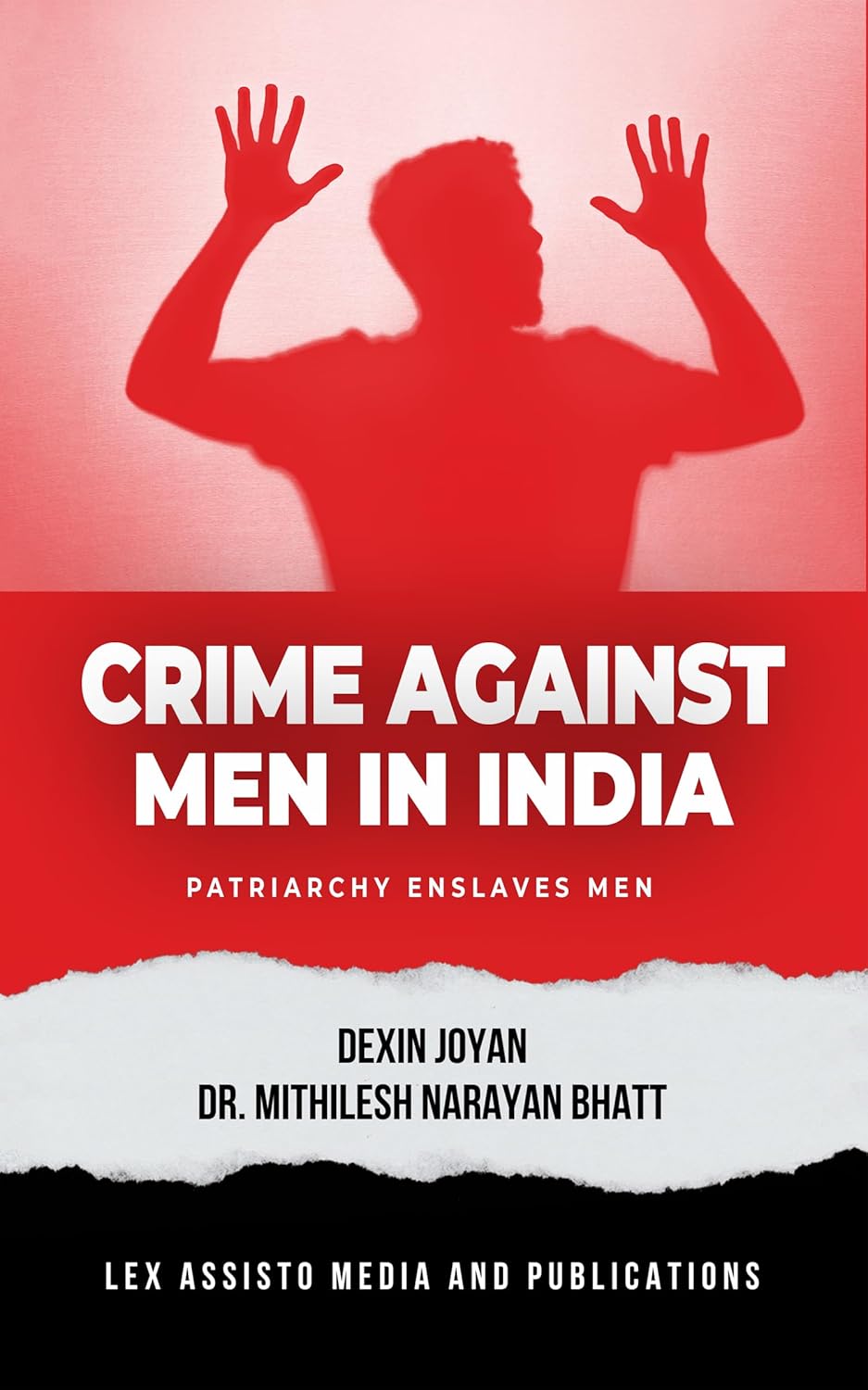
Crime Against Men in India: Patriarchy Enslaves Men
By Dexin Joyan, Dr. Mithilesh Narayan Bhatt
The book “Patriarchy Enslaves Men” boldly redefines the discourse on gender dynamics in India by addressing an issue that is both underexplored and stigmatized—crimes against men. While the broader narrative surrounding patriarchy primarily focuses on its oppressive effects on women, this book highlights the often-overlooked reality that patriarchal norms also trap and harm men in profound ways.
The book boldly redefines the discourse on gender dynamics in India by addressing an issue that is both underexplored and stigmatized—crimes against men. While the broader narrative surrounding patriarchy primarily focuses on its oppressive effects on women, this book highlights the often-overlooked reality that patriarchal norms also trap and harm men in profound ways. By shedding light on the societal expectations that dictate how men should behave—strong, stoic, and invulnerable—it underscores how these rigid stereotypes render men vulnerable to abuse, exploitation, and emotional distress.
India has made commendable progress in tackling gender-based violence against women, creating legal safeguards, and fostering awareness campaigns. However, this book argues that the same urgency is seldom extended to men who experience violence or abuse. Through a critical lens, it reveals how patriarchal systems create a double-edged sword: while they perpetuate male privilege, they also place undue burdens on men, limiting their emotional expression and often silencing their victimhood.
The book takes an empathetic, nuanced, and critical approach to a subject that society frequently dismisses or misunderstands. It goes beyond simply acknowledging the existence of crimes against men and delves into the structural and cultural barriers that prevent these issues from coming to the forefront. By breaking the silence on this taboo topic, the book invites readers to re-examine the broader implications of patriarchy as a system that enslaves individuals of all genders, highlighting the need for a more inclusive and balanced conversation around gender justice.
